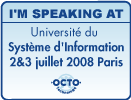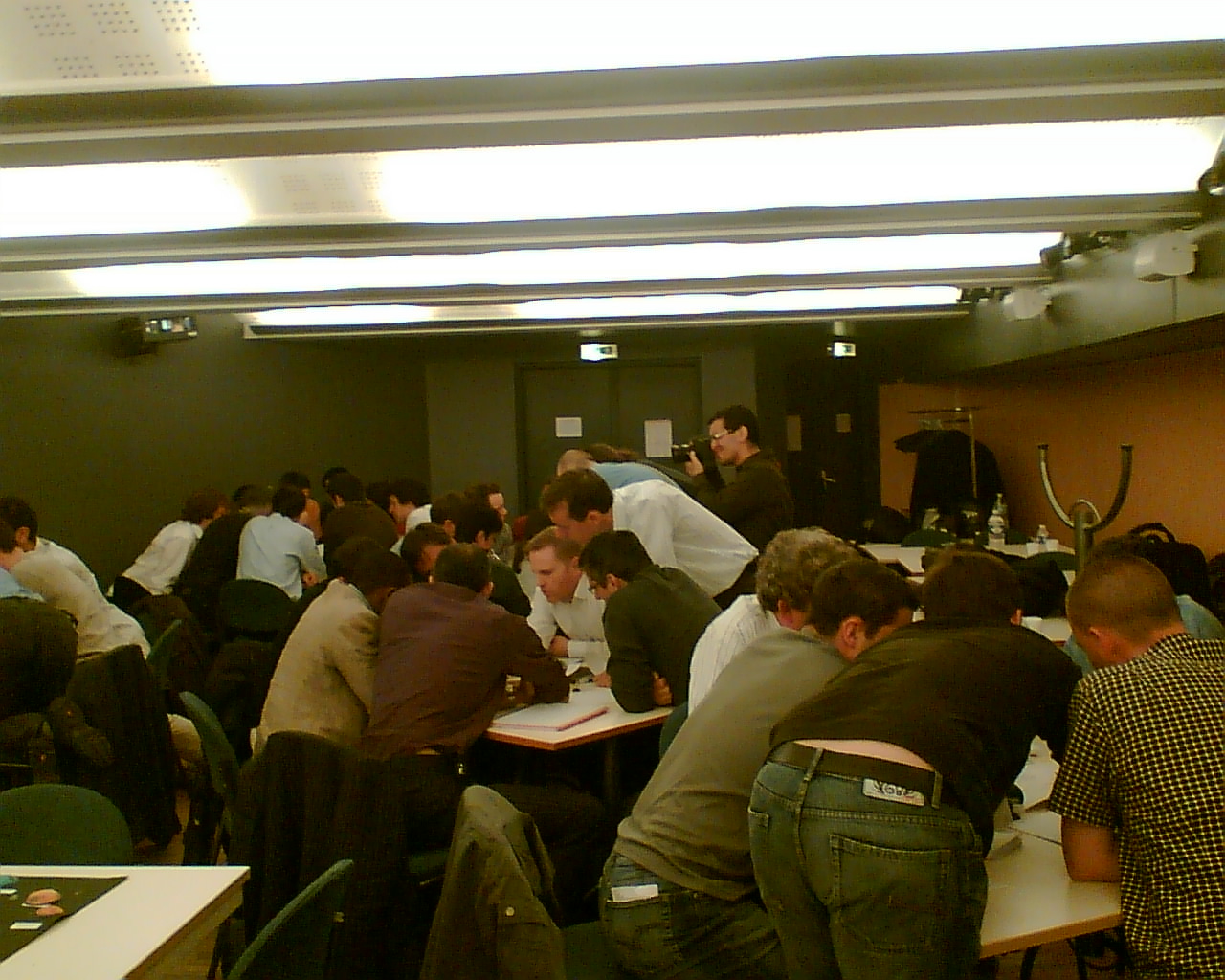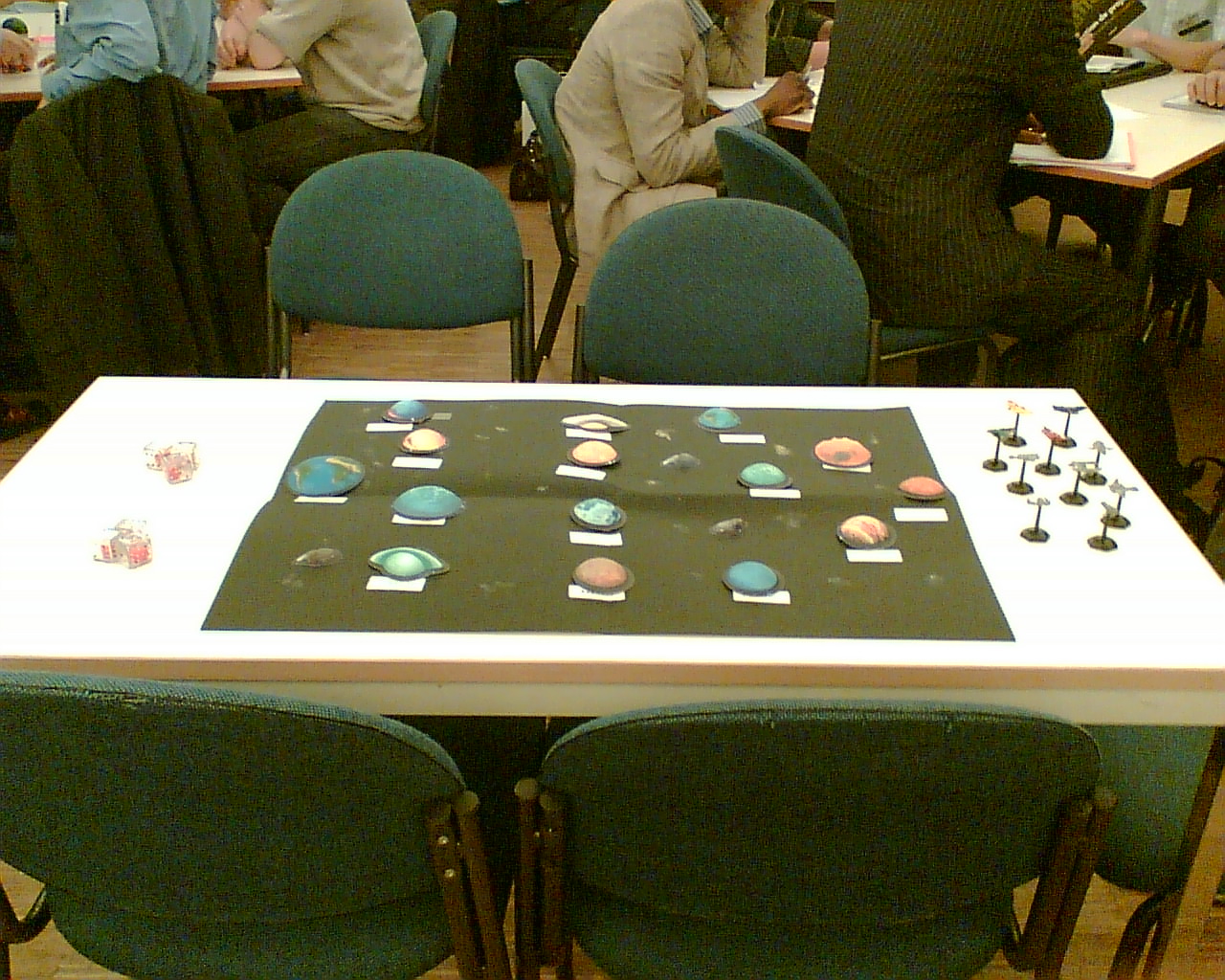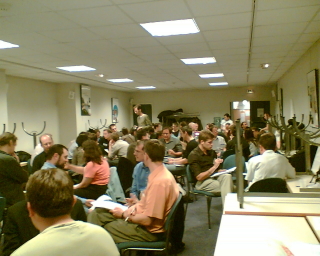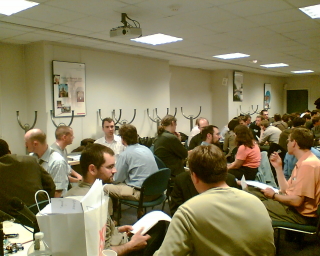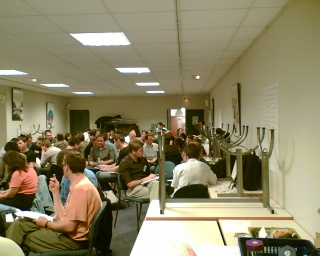Why?
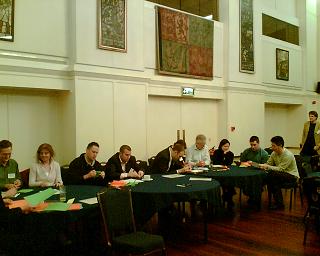
Portia writes about a participant of our Bottleneck session asking her about the relevance of a session on (industrial or manufacturing) process improvement techniques at an IT conference. Portia already told me she had the same reaction when she attended this session at XP Days London in 2005. If you look carefully, you can see Portia at the right, a bit bored as she’s waiting for the bottleneck.
Moreover, with terms like ‘exploit’ and ‘subordinate’, the 5 focusing steps don’t sound very friendly. Is this just another management fad ‘to squeeze the workers’? Can we apply manufacturing ideas to IT? Isn’t the manufacturing metaphor (or the house building metaphor) responsible for some of the worst ideas in IT?
That participant took the first step in understanding: they asked “Why?”
What is it about?
The session (and the Theory of Constraints) is about creating meaning and value by really understanding systems.
To do this, you need to:
- Design systems that fulfill a meaningful goal.
- Take a step-by-step approach to diagnose problems.
- Find real cures by going beyond your area of responsibility, beyond your comfort zone and considering the system as a whole.
- Involve everybody, to continuously challenge assumptions and long-standing traditions to create lasting improvements.
These are things I use every day in my life and my work. Are these things you could use in your work, in your life, every day?
Thank you to Portia for excellent writing advice and helping to edit this entry.
